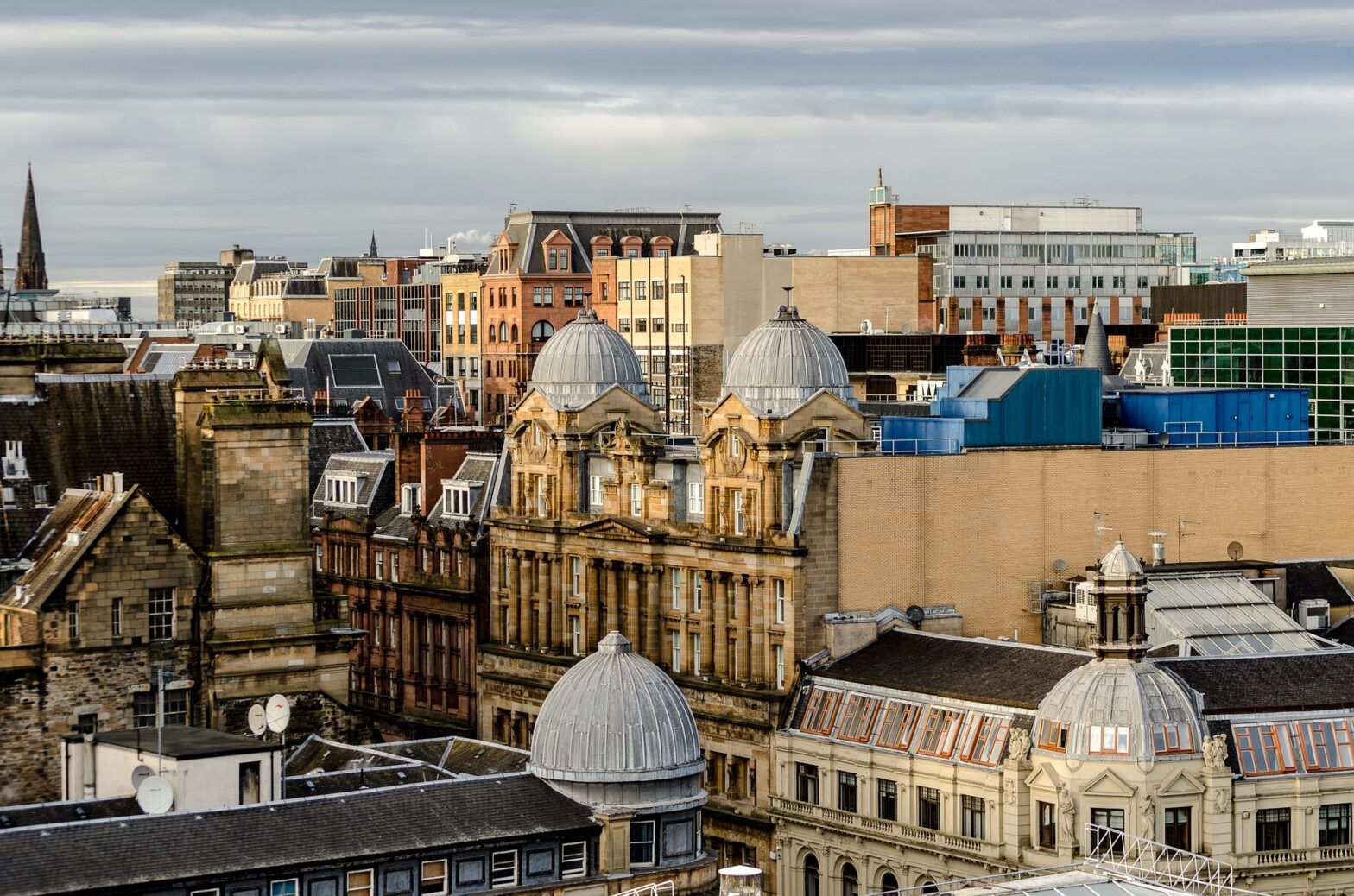Ahead of COP26, the City of Glasgow has announced a £30bn portfolio of investment products intended to help the city reach net zero by 2030.
Outlined in its Greenprint for Investment, plans include tree planting, energy installation, updated transport and sustainable fashion production.
The City hopes the projects will be attractive to investors, providing a mix of focus areas and scale, and ranging from development opportunities to “investor-ready propositions”, it said.
Susan Aitken, leader of Glasgow City Council, said: “Our net-zero future is about safer communities, warm and efficient homes, sustainable jobs and a prosperous economy. Transition has to be about the social and economic well-being of Glasgow and its people.”
She added: “This will require levels of investment never seen before in local government and adaptation plans, which will be vital in delivering a modern, resilient and inclusive city economy. As a core element of Glasgow’s Green Deal, our Greenprint brings together transformational, investable and shovel-ready projects. From an entire new transport system better connecting citizens to opportunities, generating renewable energy from the River Clyde and upgrading hundreds of thousands of homes across our city region, the Greenprint projects will deliver the infrastructure necessary for a low carbon, climate-resilient future.”
In June Glasgow provided an update on its carbon targets, saying it had reduced emissions by 41% since 2006, meaning it had surpassed its 30% by 2020 target.
The 10 featured projects in the Greenprint are:
- Clyde Climate Forest: The Clyde Climate Forest aims to plant 18 million trees in Glasgow City Region over the next decade, increasing forest and woodland cover by 3%.
- Glasgow City Region Home Energy Retrofit Programme: A 10-year £10bn programme to upgrade the insulation of all homes in the Glasgow City Region to achieve net-zero carbon emissions, give greater energy security, lower household energy bills, warmer homes and better health outcomes through reduced fuel poverty. The project explores the use of innovative renewable technologies to deliver clean energy.
- Glasgow’s District Heating Network: Glasgow will scale up the £154m Glasgow Recycling and Renewable Energy Centre to become a wider district heating network. Two key projects in Polmadie and Gorbals Districts act as testbeds, and there is another proposal to harness the power of the River Clyde for the city’s heat demands is underway.
- Climate Neutral Innovation District: The University of Strathclyde is leading a project to make the Glasgow City Innovation District 100% climate neutral and climate resilient. The collaboration between the University, Glasgow City Council and a range of other city stakeholders, will integrate 100% renewable heat, power, transport, climate adaptation and wellbeing solutions that will benefit citizens, businesses and organisations within the district, creating a unique ecosystem within the UK that drives carbon-neutral innovation.
- Charing Cross M8 Green Infrastructure Cap: Plans for this new, connected urban environment include a cap over a major interchange of the M8, the busiest motorway in Scotland.
- Glasgow Metro: A new transport provision that will improve connectivity within Glasgow and the wider City Region encompassing a population of 1.8 million.
- Advanced Manufacturing Innovation District Scotland: Scotland’s new home of advanced manufacturing with ambitions to drive the wider UK’s low carbon transition.
- Micro Park Apparel Project: More than £365bn of waste clothing is discarded each year, with a further £220bn in lost revenue due to product markdowns. Micro Park will aim to create a new location for fashion production in the UK, embedding circularity across all areas of activity including resource use, textile and fibre reuse and packaging. It will use 100% renewable energy, generate no liquid waste and have no negative environmental impacts.
- Scottish Event Campus (SEC) Expansion: Expansion plans including an ambitious energy concept aim to turn the SEC into one of the world’s most sustainable campuses and includes several globally competitive and cutting-edge conference and exhibition innovations. Investment will drive organisational targets to achieve net zero by 2035 with significant reductions by 2031.
- Green Regeneration and Innovation District: As Scotland’s first Green Regeneration and Innovation District, Clyde Gateway is working to decarbonise travel and energy for homes and businesses while providing the local community a place to live and work in a low carbon and resilient neighbourhood. Investment opportunities in this regeneration areas across all sectors including commercial, residential and hotel, will encourage circularity in the built environment.








